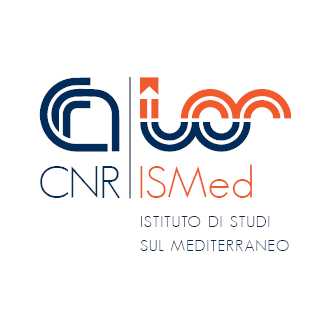Business innovation in the digital age
Coordinator: Luisa Errichiello
Abstract
Over the last few decades, computerisation and the development of digital technologies have created increasing opportunities for business innovation, allowing process optimisation, customisation of products and services, and organisational flexibility. A central aspect of the digitisation and digital transformation processes concerns the changes in work organisation and the growing adoption of models, such as remote working, smart working and virtual teams, based on space-time flexibility criteria.
The research line is part of the current scientific debate focused on the need for companies to reach a certain degree of digital maturity, questioning the trajectories of adoption and development of digital technologies and the mechanisms through which they allow to sustainably redefine strategies, redesign the organisation, rethink business models, creating more value within global ecosystems and value chains. Focusing on the Mediterranean countries, the research line aims at elaborating theoretical models and interpretative keys of the digital maturity and innovation differentials of the enterprises of the different countries and regions of the area and at elaborating guidelines and policy measures oriented to reduce the existing gaps, supporting adaptation, resilience and dynamic capacity building.
Objectives
The research line aims to expand the current state of knowledge on the processes of digitisation and digital transformation of enterprises, analysing how the adoption of one or more digital technologies, such as mobile and social, cloud computing, platforms, virtual reality and artificial intelligence influences business strategy and the dynamics of organisational change. Indeed, companies aiming for digital transformation need to innovate, acquiring and developing new resources and capabilities, redesigning structures and processes, adopting agile and virtual working models, but also to integrate what is new with existing resources, processes and capabilities. The specific objectives of the line include understanding the factors that foster the transition towards increasing levels of digital maturity; the impact of digitisation on business performance and differentials between firms in different areas, regions and countries; the mechanisms through which firms can acquire specific digital resources and develop new individual competencies and organisational capabilities; the principles of agile organisational structure design; and managerial solutions to the trade-offs generated by the adoption of digital and remote working models in terms of operational flexibility and control and efficiency requirements. In this regard, particular attention will be given to smart working and the various forms of flexible and remote working enabled by ICT. Their adoption, due to the effect of distance, triggers a profound transformation of relational structures and organisational practices and has strong psychological, social and environmental implications. Moreover, such innovations may come up against cultural barriers and the difficulty in abandoning traditional managerial models based on physical visibility. Finally, the interest in understanding to what extent and through which strategic and organisational levers the innovation trajectories enabled by digital technologies are guided by principles of business ethics and oriented towards the achievement of environmental and social, as well as economic, sustainability goals, is transversal to the various researches.
Activities
The complex nature of the phenomena of digitalisation and digital transformation, which affect strategy, organisation, information systems, supply chains and marketing, requires the adoption of a multidisciplinary approach and makes use of the contribution of multiple bodies of knowledge, such as philosophy and sociology, placed in dialogue with business sciences. Research activities mainly consist of theoretical studies, construction of databases, design and implementation of qualitative and quantitative empirical investigations using social research methods, including case studies, interviews, surveys, observation and documentary analysis. Research activities examine the strategies, processes and effects produced by one or more aspects of digital transformation at individual, organisational and network levels. Indeed, emerging digital infrastructures are open, flexible and malleable, and many technologies produce changes that transcend the boundaries of the individual firm or sector, involving broader ecosystems. However, the privileged analytical perspective will focus on analysing the specific attitudes, experiences and processes of technology appropriation by workers and managers, and the effects of their use on organisational routines and various performance measures.
The activities carried out under the line will be valorised through participation in international and national scientific conferences and publication of the main results in specialised journals and volumes. Dissemination and scientific dissemination activities will be carried out mainly through the organisation of and participation in seminars, workshops and training days addressed to a wide range of stakeholders, including managers, entrepreneurs, professionals, company employees, consultants, policy makers, institutional representatives and associations. Finally, the research team will be constantly engaged in identifying funding opportunities for specific research activities and in strengthening and expanding the network of collaboration with Italian and foreign universities and research centres, as well as with companies, associations, institutions, public and private bodies.
Themes
The project is divided into the following research themes:
- Digital innovation strategies, new business models and value creation of enterprises;
- Impact of digital technologies on organisational processes;
- Flexible and remote working models enabled by ICT;
- Organisational design of physical and virtual workplaces;
- New technologies, identity processes and digital well-being;
- Digital technologies, innovation and sustainable business development
- Digital maturity and socio-economic development of regions and countries
Main collaborations
Among the various active collaborations, of particular relevance is the participation of the research team in the Research Group on Collaborative Spaces (RCGS), an independent and international network of researchers in the humanities and social sciences, representatives of the operational world and activists, focused on new work practices and workplace transformations in the context of the sharing economy. Members of the network are collectively engaged in sharing research but also in making an impact on society and organisations, through the production of articles, reports and research notes, white papers, and the organisation of an annual symposium.
Main products
Scientific publications in peer-reviewed journals with international impact. Technical reports and dissemination products. Scientific databases. Chapters in books. Development of agreements and collaborations with universities, research centres, public and private.
Last update
20 November 2023, 11:28

 CNR – ISMed
CNR – ISMed